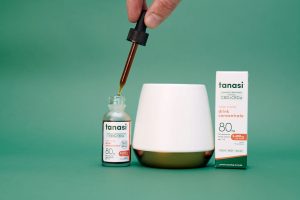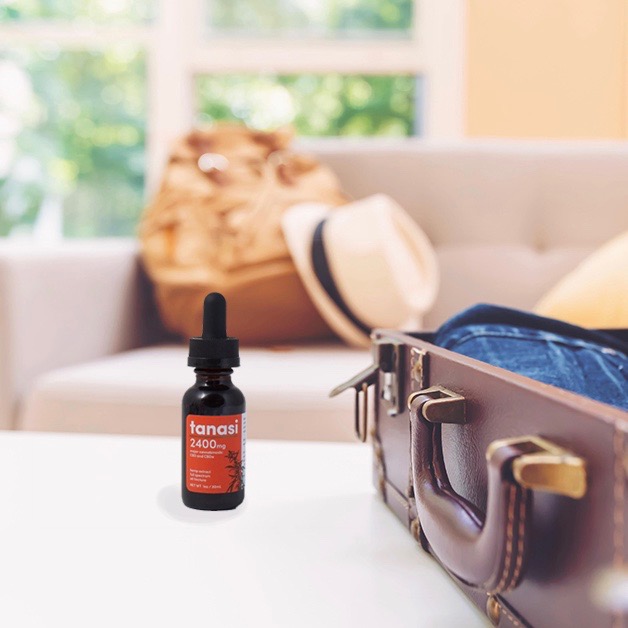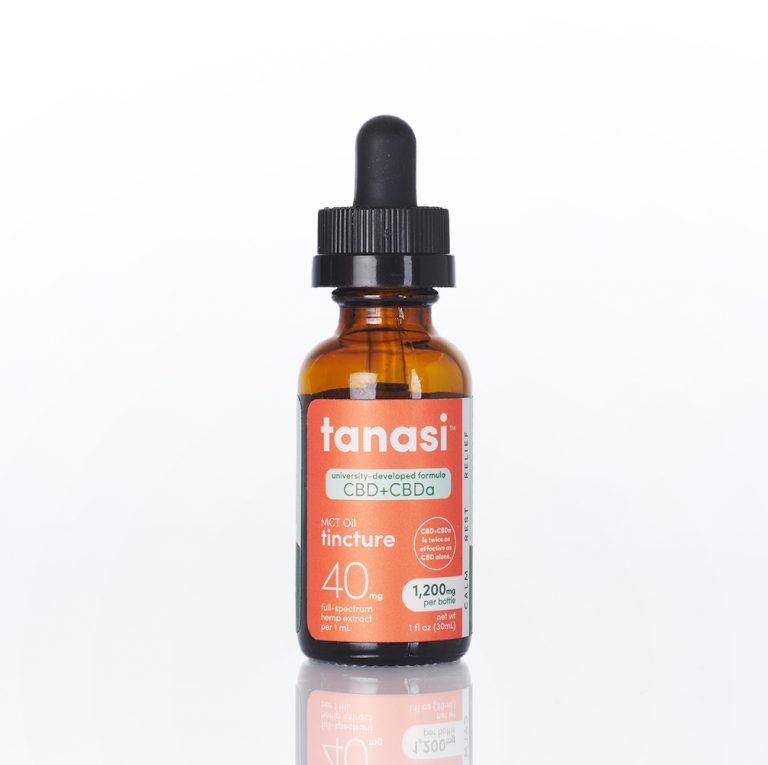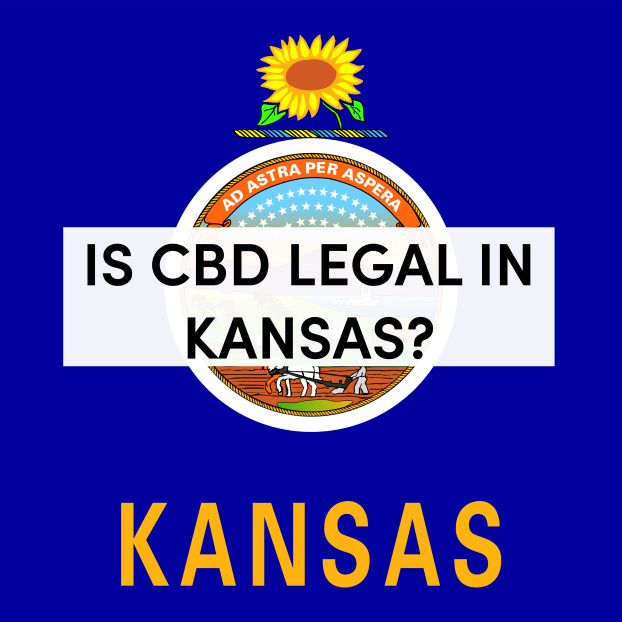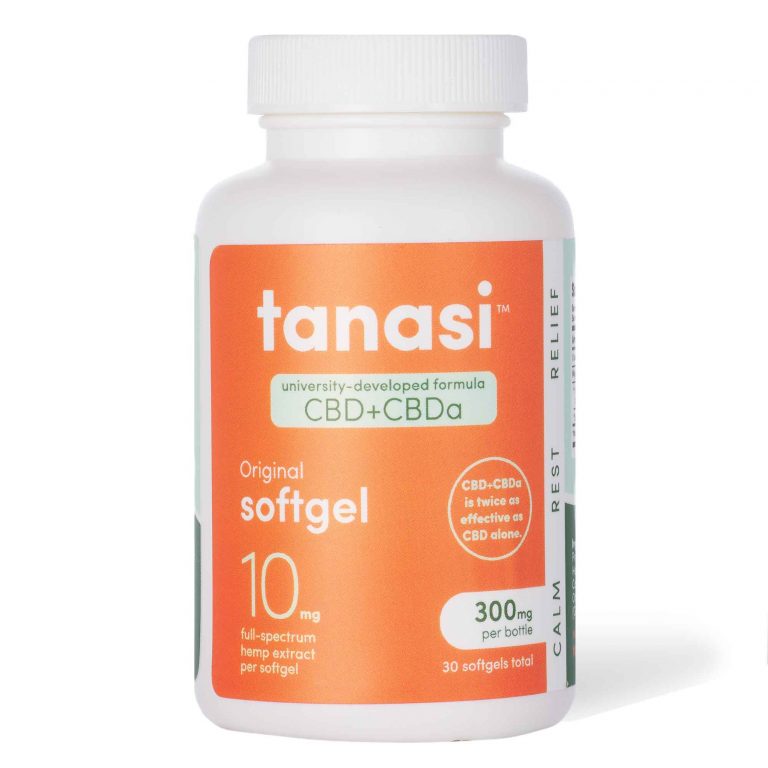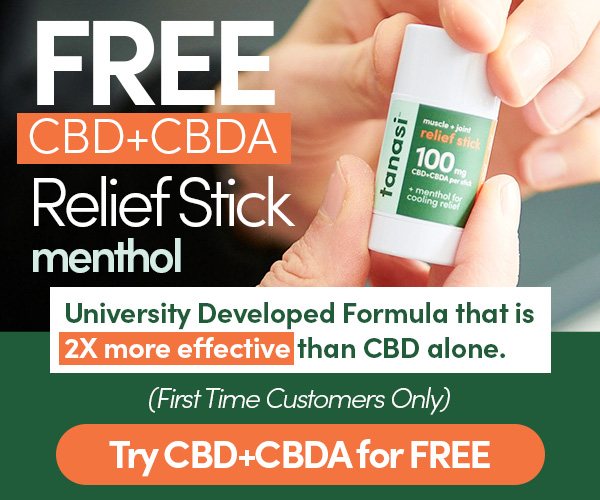CBDa + CBD and Drug Tests: A Closer Look
Posted on April 12th, 2023
Here at Tanasi, we create hemp extracts that combine CBDa and CBD, two compounds that occur naturally in all varieties of cannabis plants. We’ve created a patent-pending, 1:1 formulation of these two cannabinoids because our research shows that they are 2X more effective in combination than in isolation, (You can review our scientific findings here.)
Still, when people hear that we source CBD and CBD from cannabis, they worry about CBD and drug tests. In fact, we’ve been asked many time, do drug tests test for CBD? Well, CBDa and CBD do come from the same plant as THC, so there have been concerns about how these compounds will affect the results of drug tests. But do drug tests even test for CBD? In this read, we’ll delve deeper into this question. But first:
What are Drug Tests and How Do They Work? 
A drug test screens for prior or current drug use. The participants provide a sample from their body, be it blood, hair, or urine. The test then searches for specific chemicals or substances related to a certain drug. If it detects that substance, then the test is positive. The accuracy of these tests depends on the substance tested and the test used. Marijuana tests, for example, are pretty common and quite accurate.
Generally, a drug test requires you to submit a urine sample in a lab. Later on, you need to also provide a clean-catch sample, which entails the following:
- Wash your hands.
- Clean the genital region with a cleansing pad provided at the lab.
- Begin to urinate and collect at least an ounce of urine into the provided container.
- Finish up and return the container with the sample to the lab technician.
In some situations, a medical technician may have to be present as you turn in the sample.
Blood samples are a bit different. You’ll go to the lab, and the practitioner will collect a blood sample from your arm. You may feel a small sting during the injection, but the process takes just a few minutes.
Who Asks for Drug Tests?
Drug testing is a way to find out if you consume certain drugs. The following fields employ them extensively:
- HR professionals- employers sometimes need to test you before or after hiring in order to assess on-the-job drug consumption.
- Health Care Providers- If your doctor prescribed an opioid for chronic use, they might have to conduct a drug test to ensure you’re consuming the right dose.
- Sports Organization- Athletes, especially professional ones, are mandated to take drug tests to ensure they are not using performance-enhancing substances.
- Forensic or Legal Purposes- Drug testing can ideally be a part of an auto accident or criminal investigation. Also, they might be mandatory as part of a case in court.
CBDa + CBD and Drug Tests: How Can Drug Tests Give a False Positive?
There are many factors that can lead to a false positive drug test. These include:
1. Mixing up Samples
It is certainly possible for it to be a mixup at the collection site through improper sealing and failure to label the samples when collected.
2. Improper Lab Procedures
Labs must follow stringent, quality-controlled procedures when it comes to handling samples and conducting chemical analysis on them. Failure to observe the best practices can potentially ruin samples, leading to erroneous results.
3. Accidental Exposure or Passive Inhalation
Some individuals become exposed to some substances by simply being around those who do use them. A possible example is sitting next to a person smoking marijuana and end up testing positive for THC.
4. Extremely Low Cut-Off Levels
In drug testing labs using extremely low cut-off levels, accidental or incidental exposure to the substances gives a false positive. An example is consuming poppy seeds or passively smoking marijuana, leading to a false positive for morphine or THC.
5. Cross Reactants
Some compounds have structures that are extremely similar to the drug being tested for. As a result, there’s misidentification, and the results report a false positive. Some substances that result in cross-reactivity include:
- Poppy seeds
- OTC drugs
- Melanin
- Ibuprofen
- Antibiotics
- Antidepressants
- Pain relievers
If a drug test comes back positive and the donor admits to using the substance, there will be no need for additional tests. However, if the donor denies the positive result, a confirmatory test then takes place, often a Gas Chromatography-Mass Spectrometry (GC/MS).
What are Cannabinoids?
These are a class of active compounds that occur naturally within all varieties of cannabis plant, including marijuana and hemp. Today, scientists have identified over 100 such compounds, but CBD and THC are some of the most well known. At Tanasi, we’ve learned more about CBDa, the acidic precursor to CBD, so we’ve added this compound to all our hemp-extracts using a 1:1 formulation with CBD that’s 2X more effective than CBD alone.
Where Do Cannabinoids Come From?
Cannabinoids are present in the following sources:
- Plants, particularly hemp and marijuana, are varieties of cannabis. These types of cannabinoids are ‘phytocannabinoids.’
- The body. These are naturally produced by the body and referred to as ‘endocannabinoids.’
- The lab. These are artificially created in the lab and referred to as ‘synthetic cannabinoids.’
Do Drug Tests Test For CBD or CBDa? What are these compounds, exactly?
CBD or cannabidiol is the second most abundant cannabinoid. It does not cause intoxication. In fact, according to the World Health Organization (WHO), CBD does not show any effects related to abuse or dependence potential. Currently, there’s no evidence of health-related issues related to CBD consumption, although it can interact with certain medications. Similarly, CBDa does not cause intoxication and has not been linked to any serious side effects.
What Is THC?
Scientifically referred to as tetrahydrocannabinol, THC is the most prevalent cannabinoid in the marijuana variety of cannabis plants. It has a psychoactive effect. And that means that THC has mind-altering effects.
Does CBD Make You High?
As earlier mentioned, even though extracted from both marijuana and hemp, CBD does not have any psychoactive effects. This makes it an excellent alternative for people looking to try a cannabis supplement.
CBD and Drug Tests: Do Drug Tests Test for CBD?
CBD derived from hemp is available in places where cannabis use for recreational use is illegal. However, some people still tend to worry whether or not CBD products will show up on a drug test. Even in places where it’s legal to purchase and consume THC-rich cannabis, some companies still screen their employees for cannabis use. This is certainly a valid concern, given that all hemp-derived cannabidiol products are legally allowed to have traces of THC. However, that amount does not exceed 0.3%, leaving consumers to wonder if that trace amount might show up in drug tests.
So, Should You Worry About CBD Showing Up in a Drug Test?
More often than not, it is unlikely that cannabidiol will appear on a drug test. Most drug tests, especially those in the employment field, check for THC and THC metabolites. Most organizations follow the rules set by the Substance Abuse & Mental Health Services, including testing for THC and not CBD.
As such, the chances of a false positive are for THC and won’t happen unless you take excessive amounts of the product.
Do Drug Tests Test for CBD? – The Takeaway
Cannabidiol may come from either hemp or marijuana, but it should not appear on a drug test. However, for those who are concerned about consuming any THC, you may wish to avoid our full-spectrum extracts, since they do contain less than 0.3% THC. If that is the case for you, it may be best to try one of our broad spectrum products, which contains all the hemp plant extracts EXCEPT THC.

